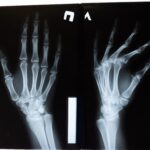Can You Prevent Vision Loss as You Age
As you age, you will likely notice some changes in your ability to see. These changes can be minor or significant. Just like your body works a little differently than it did in the past, the same rules apply to your eyesight and vision.
Many common eye conditions and diseases can affect aging adults. Actually, by the age of 65, 33% of individuals have some type of vision-reducing eye disease. For example, some common age-related eye diseases and issues among seniors include glaucoma, cataracts, and age-related macular degeneration.
According to the National Eye Institute, more than 37 million people aged 40 and above have these ailments. Many of these vision changes are expected. You can manage some with simple lifestyle and diet adjustments and advice from your ophthalmologist or optometrist. In contrast, others can be a sign of a severe underlying medical condition that must be addressed.
How Vision Changes As You Age
You may have difficulties focusing on close objects. Also, note that your peripheral vision might have declined by 20 degrees by the time you reach your 70s. Did you know that reduced near vision is because the lenses inside the eyes harden, becoming less flexible and effective with age?
As a result, they lose the ability to change focus. And that is not all; your eyes become drier, leading to some common eye conditions, such as corneal abrasion, inflammation, and corneal ulcers.
Many individuals experience subtle differences and changes in their vision as they approach middle age as well as the decades that follow. These changes can include:
- Problems distinguishing colors. You may take a bit longer in order to distinguish shades of color than in the past, like seeing how much black coffee is left in a blue or dark blue mug.
- Slow adjustment to changes in light. As you gradually move to brightly lit rooms from dimly lit rooms or vice versa, you may find that it takes longer for your eyes to adjust.
Common Age-Related Eye Conditions
Cataracts
Cataracts cause clouding of the normally clear lens in your eye. You should know that it can be caused by high blood sugar levels from diabetes.
Cataracts prevent light from efficiently and quickly passing through the lens to your retina, causing blurry vision. Note that cataracts are the leading cause of vision loss for people over age 40.
Diabetic Retinopathy
This happens when the retina swells following a fluid leak triggered by damaged or impaired blood capillaries in diabetic patients.
Glaucoma
This is one of the top causes of blindness for people over 60 years old. Glaucoma usually occurs when there’s too much pressure inside your eye. This causes damage to the optic nerve at the back of your eyeball, leading to severe or permanent vision loss.
Aids to Help With Vision Loss
If you’ve issues seeing despite wearing glasses, low-vision aids can be helpful. These are special and unique devices that are better than regular eyeglasses. Some doctors also recommend eye health supplements for it.
Some individuals with only partial sight can improve their vision considerably by using these devices.
Popular low-vision aids and devices include:
- Telescopic glasses.
- Magnifying glasses.
- Lenses that filter light.
Tips to Keep Your Eyesight Strong and Healthy
There are several things that you can do to promote and improve your eye health and eyesight as you age. Making lifestyle and dietary changes will help prevent many eye conditions and ailments associated with aging.
- Quit smoking, as it increases the risk of eye diseases. Smoking increases the risk of developing cataracts and age-related macular degeneration.
- Eat a healthy and nutrient-rich diet. Specific vitamins and nutrients, such as lutein, zeaxanthin, vitamin E, vitamin C, and omega-3 fatty acids, help promote eye health and vision and prevent many eye conditions. It is best to incorporate lots of leafy green vegetables, nuts, fruits, and fish into your diet.
- Have an eye examination with pupil dilation at least once a year, especially if you’ve diabetes or your family has a history of eye disease.
- Pick shades to protect your eyes from UV-A (long wave) as well as UV-B (short wave) rays. Also, make sure you wear them throughout the year. Protecting your eyes by wearing sunglasses and blocking ultraviolet light when you are outdoors will help you maintain excellent vision.
- Stay active and maintain a stable and healthy weight. Remember that obesity can increase the risk of glaucoma and age-related macular degeneration.
- Manage other health issues and conditions. Keeping diabetes and high blood pressure in check will help prevent conditions such as diabetic neuropathy.
- Schedule frequent eye checkups. A yearly eye exam with an optometrist or ophthalmologist can help you identify eye problems early. Also, see an eye specialist immediately if you’ve blurred vision, sudden loss of eyesight, eye pain, double vision, and redness.
What about Supplements?
There are many eye health and vision health supplements available in the market right now that can help improve vision. If you want to improve your vision, we recommend you nothing but the best eye health supplements.
Introducing Dr. Nandi’s Eye Max
Eye Max contains a specific blend of nutrients, botanicals, antioxidants, and minerals that support healthy vision and eye function. The formula delivers daily targeted macular and retinal support to improve and increase visual sharpness and acuity, and bolster ocular blood flow.
Eye Max provides essential antioxidant support and many vital nutrients in order to maintain vision and the long-term health of your eyes. That is why we recommend you nothing but the best eye max health supplements.
Alpha Lipoic Acid
This is a strong and versatile antioxidant that is water- and fat-soluble. Alpha Lipoic Acid (ALA) can inhibit oxidative damage to DNA as well as nitrative stress in your retina. This helps prevent sorbitol-induced leakage of crucial antioxidants from your eye tissues and recharges vitamins C, E, ALA, and glutathione. Also, supplementation with this acid represents an achievable adjunct therapy, helping prevent vision loss in diabetic patients.
Ginkgo Biloba
Ginkgo biloba is an extensively studied botanical that improves cerebral blood flow. It also protects neurons from various health conditions and oxidant-induced damage.
Ginkgo biloba increases blood circulation in your eyes and has been linked to improving the conditions of people with diabetic retinopathy and macular degeneration.
Carotenoids: Zeaxanthin, Lutein, Lycopene
Zeaxanthin and lutein are carotenoid pigments and some other supplements that play an essential role in eye health and vision. According to epidemiologic research, there is a link between high levels of zeaxanthin and lutein in eye tissues and better eye function, and improved visual acuity.
Both these carotenoids are found in the retina and macula of your eyes and help filter potentially dangerous blue light, protecting your eyesight.
Zinc
Zinc is an important coenzyme for eye tissue and is one of the necessary components in antioxidant enzymes, including glutathione peroxidase, superoxide dismutase, and catalase.
You can stimulate these necessary enzymes by adding zinc. Zinc also helps create a pigment known as melanin, which protects your eyes, and studies indicate this nutrient can help slow down age-related macular degeneration
Bilberry
The formula also contains bilberry extract that has a high amount of essential antioxidants known as anthocyanidins. Bilberry has also been suggested as a viable treatment for retinopathy. This is because anthocyanosides seem to help protect the retina.
Also, bilberry has shown protective effects against glaucoma, macular degeneration, and cataracts.
Quercetin
Eye Max also contains quercetin. It is a flavonoid found in many herbs, fruits, and vegetables and provides antioxidant support for your eyes. Quercetin has potent antioxidant, immunomodulatory, anti-inflammatory, anti-carcinogenic, and vascular protection properties.
Eye Health and Vision: Summarized
To maintain your eyesight and vision as you get older, you should:
- Eat right and maintain a healthy weight
- Wear protective eyewear or sunglasses
- Quit smoking
- Manage other health conditions, such as diabetes
- Use of effective eye max and eye health supplements
There are many factors that help improve eye vision and eye health, the use of eye health supplements certainly helps boost your eyesight apart from wearing glasses and taking precautions such as the ones mentioned above.
Sources
https://nei.nih.gov/eyedata/adultvision_usa




